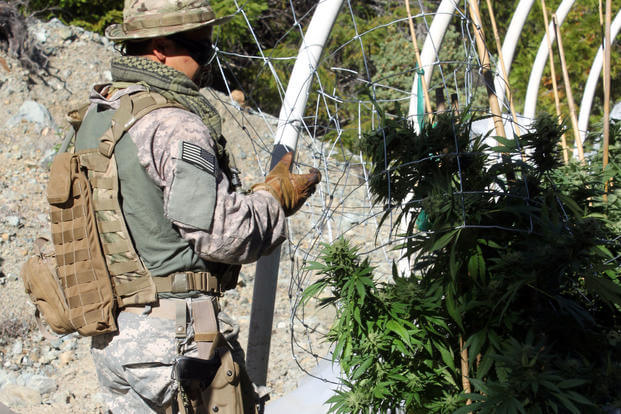In addition to playing a larger role in the Army's operational force, the National Guard is ramping up efforts to counter illegal drugs across the country.
"I suspect I speak for all of the states when I say 'we have a tremendous and incredible drug problem and in my area,'" Rep. Harold Rogers, R-Ky., said during a Wednesday hearing before the House Appropriations Committee's Defense Subcommittee.
"The Guard has had a great program to eradicate marijuana in the remote hills of Appalachia where apparently it's a great climate for the growth of marijuana," he said. "They had eradicated 13 million marijuana plants; they have seized tons of marijuana, illegal weapons and so forth all to the tune of $25 billion."
Despite a grassroots effort to legalize marijuana, illegal marijuana in Kentucky is grown under high-tension electric wires, Rogers said, describing how the practice makes it difficult to prove who owns it and also hinders helicopter access because of the power lines.
"I have been on a couple of these missions where they fly into a very remote area of mountains. The troopers have to rappel down a rope and cut the marijuana, put it in a big bag put it over the their shoulder and are picked up by the helicopter and carried 50 miles dangling 100 feet from below a helicopter -- very dangerous work but very productive," Roger said.
Rogers then asked General Joseph L. Lengyel, chief of the National Guard Bureau, "do you see that continuing and what can we do to help you see that?
Lengyel the committee for the $234 million the Guard recently received for the counter-drug program. The funding helps the Guard work with law enforcement to "detect, disrupt and curtail illegal drug activities in every state," Lengyel said.
"I consider the counter-drug program a huge part of the homeland security mission and homeland support mission that we do," Lengyel told lawmakers.
"I think as you look across the nation, every state's program is individually tailored for the requirements that they have inside their state."
The Guard relies on the Threat-Based Resource Model to decide how much money each state receives for its counter-drug needs, Lengyel said, who added that "states use those funds and develops their own plan ... so I want to continue to support that."
The $234 million "has not only facilitated a robust liaison with law enforcement, the ... additional schools that it funded has allowed us to build additional capacity to fight this this drug issue whether it is marijuana or opioids or heroin or synthetics," Lengyel said. "And we all know that significant toll that it has taken on our nation."
Rep. Tim Ryan, D-Ohio, asked Lengyel "Are you starting to make a distinction in prioritization in opiates versus marijuana?
Lengyel conceded that "because of the rise and the devastating effects of the opiate piece, it had to take on a more important role in the Threat-Base Resource Model ... and we are going to apply the right authority to it."
-- Matthew Cox can be reached at matthew.cox@military.com.



























